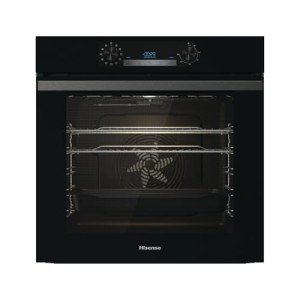You'll Never Be Able To Figure Out This Built In Electric Oven's Secre…
페이지 정보

본문
The Comprehensive Guide to Built-in Electric Ovens and Hobs
In today's busy world, modern-day kitchen appliances have actually progressed dramatically to cater to the tastes and requirements of modern house owners. Amongst these appliances, built-in electric intergrated ovens and hobs stand out for their performance, design, and functionality. This post checks out the functions, benefits, installation pointers, and maintenance of built In electric oven-in electric ovens and hobs, together with addressing regularly asked concerns.
Comprehending Built-in Electric Ovens
What Is a Built-in Electric Oven?
A built-in electric oven is a home appliance developed to be set up into a wall or kitchen cabinetry, providing a smooth, integrated oven look in the kitchen. Unlike freestanding ovens, built-in designs save space and frequently come equipped with additional features such as self-cleaning cycles, convection cooking, and various cooking modes.

Kinds Of Built-in Electric Ovens
- Single Ovens: Ideal for smaller sized cooking areas or those who cook for less individuals.
- Double Ovens: Offer more cooking area, suitable for larger families or those who entertain frequently.
- Mix Ovens: These consist of both a standard oven and a microwave, offering flexible cooking choices.
Benefits of Built-in Electric Ovens
| Benefit | Description |
|---|---|
| Space-Saving Design | Fits perfectly into cabinets, releasing up counter area. |
| Enhanced Aesthetics | Produces a contemporary, expert kitchen appearance. |
| Versatile Cooking Options | Typically features numerous cooking modes including bake, broil, and convection. |
| Energy Efficient | Takes in less energy than traditional integrated ovens and hobs. |
Comprehending Built-in Hobs
What Is a Built-in Hob?
A built-in integrated hob and oven is a cooking surface installed into the kitchen counter top, integrating perfectly with the kitchen design. Readily available in electric, induction, and gas ranges, electric hobs are renowned for their precision and ease of usage.
Kinds Of Built-in Hobs
- Electric Hobs: Traditional coil aspects that heat via electrical resistance.
- Induction Hobs: Use magnetic energy to heat only the pots and pans, making them quicker and safer.
- Ceramic Hobs: Feature a smooth surface with convected heat underneath, providing easy cleansing.
Advantages of Built-in Hobs
| Advantage | Description |
|---|---|
| Fast Cooking Times | Electric hobs heat quickly, lowering total cooking time. |
| Easy to Clean | Flat surface area enables fast and uncomplicated cleaning. |
| Durable | Traditionally built to last and withstand heats. |
| Versatile Compatibility | Functions well with various cookware materials. |
Installation Considerations
Installing a built-in electric oven and hob needs careful preparation.
Steps for Installation
- Procedure the Space: Ensure the measurements of the oven and hob match the assigned space in your kitchen.
- Examine Electrical Requirements: Consult an electrical contractor to make sure electrical wiring can deal with the appliance's power needs.
- Placement of Appliances: Position the oven at a hassle-free height, generally in between waist and eye level.
- Ventilation: Ensure appropriate ventilation, particularly if your oven integrates a range hood.
Necessary Tools
- Power drill
- Screwdrivers
- Level
- Measuring tape
Security Precautions
- Constantly disconnect the power before setup.
- Follow manufacturer directions carefully.
- Consider employing a professional for electrical connections.
Upkeep Tips
Keeping built-in electric ovens and hobs is essential for durability and efficiency.
Regular Care Routine
- Cleaning up the Surface: Use a soft cloth and manufacturer-recommended cleaner.
- Inspecting Electrical Connections: Check cables and plug for damages occasionally.
- Cleaning Filters: If the oven has a ventilator, tidy or replace the filters as required.
Repairing Common Issues
| Concern | Possible Solution |
|---|---|
| Oven Won't Heat | Examine the power supply and heating element. |
| Heating Inconsistency | Inspect the thermostat and oven calibration. |
| Hob Not Heating | Guarantee pots and Built in electric oven pans works and examine the power supply. |
Often Asked Questions
1. How do I pick the right size built-in electric oven?
Selecting the ideal size includes measuring your kitchen space and thinking about just how much cooking you usually do. If you amuse often or have a large family, go with a double oven.
2. Are built-in electric hobs safe to use?
Yes, built-in electric hobs are safe, particularly induction hobs which only heat up the cookware, decreasing the risk of burns.
3. Can I install a built-in oven and hob myself?
While it is possible for experienced DIY enthusiasts, employing an expert is suggested, particularly for the electrical connections.
4. How frequently should I clean my built-in oven and hob?
Cleaning up need to be done frequently after use, with deep cleaning periods depending on cooking frequency - normally every couple of months.
5. Do built-in appliances need special maintenance?
Built-in appliances require comparable maintenance to freestanding models, however appropriate care should be taken with their surrounding cabinetry.
Built-in electric ovens and hobs present a fusion of innovation and style, providing performance and modern aesthetic appeals to any kitchen. With proper choice, mindful setup, and regular upkeep, these appliances can improve one's cooking experience for many years. Comprehending the features, benefits, and care requirements can empower house owners to develop the kitchen of their dreams-- efficiently and stylishly.
As kitchen areas continue to evolve into central centers of the home, picking the right built-in solutions plays a crucial function in daily cooking creativity and enjoyment.

- 이전글14 Cartoons About Skoda Fabia Replacement Key To Brighten Your Day 25.05.20
- 다음글The Most Hilarious Complaints We've Heard About Casement Window Repair 25.05.20
댓글목록
등록된 댓글이 없습니다.

